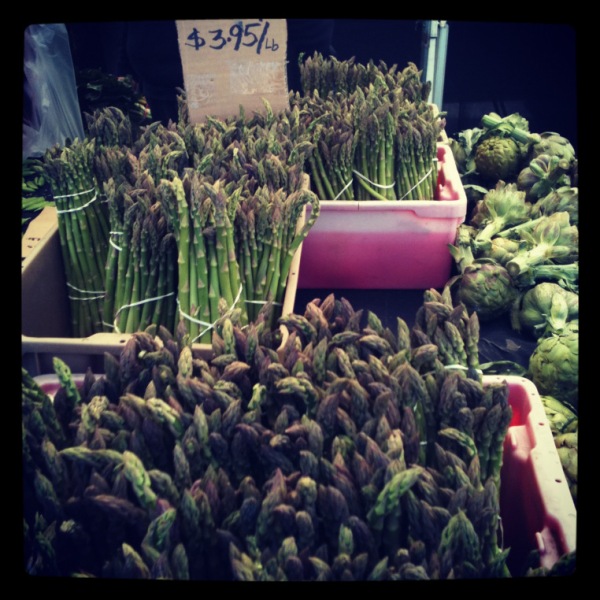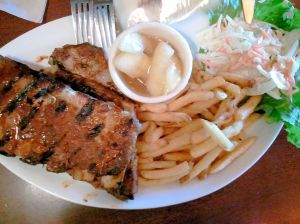
When we lose our sensitivity to the bad foods we eat, we want more bad food and lose track of the good.
On our flight home from Seattle this week, I had a bit of snobby moment.
You could order a $6 cheeseburger on our flight. Maybe I’m assuming, but I can’t imagine that cheeseburger had good quality meat. And who knows when that thing actually was cooked.
I found myself thinking, “why would anyone eat that? It’s like, so bad for them.”
For the issues we care about, I think many of us find ourselves screaming inside: “Why doesn’t everybody care about this?” Or, “if people only knew about (blank), they would never…”
For me, the issues I care about center around food and our health. I’m by no means and expert, but the more I read, the more I learn about the importance of local food and eating good quality ingredients. The more I learn, the more I find myself asking questions of the food I eat and what others eat.
Yes, I sound like one of those people, I know. But I’m not trying to be snobby. I’m more interested in figuring out: how did we get here? I wonder that in general, but find the question especially pertinent to Christians, who have been charged with treating our bodies as temples.
I came across this verse from Ephesians last week, and I think it provides some insight to my question.
“Having lost all sensitivity, they have given themselves over to sensuality so as to indulge in every kind of impurity, with a continual lust for more.” (Ephesians 4:19)
I know that’s kind of heavy, but I wanted to focus on the first and last part of that verse.
Once we lose our sensitivity, we just want more of whatever it is.
You can apply that verse to just about anything in life; to something as extreme as drugs, or something as every day as a stop at a fast food joint.
Maybe that’s how we got here. And by here, I mean obesity skyrocketing along with lifestyle-related diseases.
We like sweets. French fries. Meat. So we have more. And more. Until we lose our sensitivity to feel that by eating these items in excess, our bodies suffer harm.
In my own life, I remember a concrete example of this. While I attended community college, I bought a blended caramel coffee drink from a little drive-thru spot in my hometown. I bought one almost every day. That included moments in the drink where you could slurp up straight caramel. Sweet mercy it was good.
Then, I realized post-college that the life of a reporter did not account for drinking $4 sugar bombs every day. I stuck to brewing my coffee at home for the most part; a stop at a coffee shop was an occasional treat.
About two or three years later, I decided to get that blended coffee drink while driving through town. After drinking 1/3 of it, I was shaking from the sugar. I felt sick.
I remember thinking, “how had my body tolerated this much sugar before?”
Yes, I was 18, which certainly helped. But mostly, I had lost my sensitivity to sugar in those younger days. When I backed off and my body needed less sugar, my body couldn’t handle it when I drank something laced with sugar.
With food, I think we’re all in a similar boat. As I’ve mentioned in a previous post, other countries refuse to buy our meat. Our country faces an obesity epidemic.
And yet, we just keep eating the same foods over and over.
If we read Ephesians 4:19, Paul may have been speaking about sexual impurity and/or general debauchery. But our food choices—or our lack of sensitivity to our food choices—elicits the same effect.
We just want more of what we shouldn’t have. And quite literally, it’s killing us, from the inside out.



